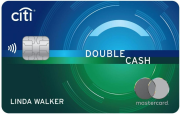The content on this page is accurate as of the posting date; however, some of the offers mentioned may have expired.

Pay Attention, or Be Prepared to Pay Up
Fine print has almost a mystical power. We all know it contains important information, but for some reason, we just can't stand to read it. Credit card companies understand this phenomenon. They know we hate to spend time wading through all the legalese and cumbersome verbiage. Unfortunately, our failure to read the fine print often winds up boosting their bottom line.
"A credit card is like taking out a loan or buying a house," said Ravi Shahani, a credit counselor with American Consumer Credit Counseling. "It's a contract, and it's important that you read the fine print. If you default on that contract, you could be subject to late fees and other penalties."
Fear not, fine print avoiders. There are ways to avoid extra fees and surcharges. If you know a few things to look out for when you receive your statements, you can avoid some unnecessary financial pain.
The most important thing to remember is that the terms of your credit card are always subject to change. That's right - no matter what fantastic deal the credit card company wooed you with, they always have the right to pull the rug out from under you. "Read everything in the introductory offer," Shahani said. "Then always monitor your statement for notices." Rises in interest rates, end of introductory periods, or if the issuing bank is bought out by another company are just among the many events that can trigger a change to the terms of your contract. Make sure you read anything you receive in the mail - especially that pesky fine print.
Here are a few things to keep your eye on:
APR, Variable rate - We've all seen the low, low, low interest rate stated in enormous print on a direct mail piece. What you need to do is find out what the initial rate will change into when the introductory period is over. Most people miss it, which is why according to American Credit Counselors, 53 percent of Americans carry balances past the promo rate period. Keep in mind that if you miss a payment, many creditors will increase your rate.
Fees - Oh, where would credit card companies be without those wonderful fees? They come in many shapes in sizes. Late fees, inactivity fees, annual fees, fees for not paying off your balance, fees for exceeding your limit, cash advance fees, fees for overdraft protection, and fees on balance transfers (to name a few). Comb through the fine print, and keep them in the back of your mind when you're using the card.
Calculating Your Interest Rate - One of the more difficult pieces of the credit card puzzle is just how the aforementioned interest rates are calculated. Most use the "average daily balance" method. However, there are companies that use a "double billing cycle". In this method, the due date listed on your statement is for your minimum payment. The due date for the entire payment may be two weeks earlier, however, and the company charges you for interest accrued during those two weeks.
You also need to remember that your principal payments are always applied to purchases made at the lowest interest rate. If you're lured into a lower rate for an introductory period and then make subsequent purchases when the rate goes up, your payments will first be applied toward the sum collecting the lowest interest rate.
Grace period - This is the amount of time you have to pay off the balance of your credit card without being charged interest. Unfortunately, the grace period can also be changed at the drop of a hat. Many 25 day periods are unceremoniously changed to 20 day period.
Changing credit limits or penalties for bad credit - Your credit history can also cause the terms of your credit card to change on the fly. You may be enticed by a credit card offer, thinking you're going to receive a credit limit "Up to $30,000", but if the company doesn't like the looks of your credit, they may give you a significantly smaller line of credit.
Also, if your credit becomes impaired while you're a holder, a company may hike your interest rate. They actually monitor your credit for late payments, increased spending or debt, new accounts, etc. So, a late payment triggering a rate hike doesn't just include your payments to that specific credit card; make a late payment on your car or your house, and you may feel the impact on your credit card.
The moral to this story is to set aside some time in your day, get out that magnifying glass, and really scrutinize the fine print. "And if you don't understand it," Shahani said, "Call the credit card company and ask them to explain it."
Armed with some of the insight in this article, you should be able to lessen the pain of this process. And your bank account will thank you in the end.
Changing Conditions: What to Look For
Your life is busy enough without having to watch out for changes in your credit card conditions. What are a few ways you can keep your eye out for recent changes to your conditions?
Read the filler - You receive a credit card statement every month. Take time to scrutinize the additional inserts. Many of them are solicitations, but some may contain new information on your card.
Read the papers - Many times, card conditions change when the company that issues your plastic merges or is acquired by another financial institution. Skim the financial pages from time to time to see if your issuer is part of a merger or acquisition. If so, expect your terms or conditions to change.
Use Your Customer Service - If you receive notice of a change, don't be afraid to call the company's customers service line and ask for a simple explanation. Hopefully, the reps can translate the legalese and clear up some confusion.





